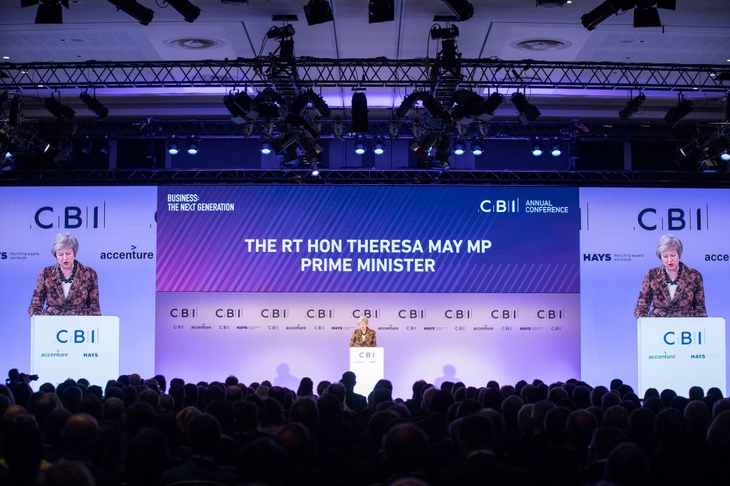Big UK business is often guilty of short-termism and the CBI’s response to Theresa May’s draft withdrawal proposal is no exception. Large companies are backing May’s appalling deal with the EU because they are preoccupied with ensuring that next year’s results are no worse than the guidance they have given markets. The opportunities which could arise from a proper Brexit, in which Britain is allowed to do its own trade deals, set its own regulations and lower taxes and other barriers in order to suck in overseas investment, are too far over their horizon for them to see. How often have you heard the words drip from well-fed FTSE 100 executives: ‘what business needs most is stability’? It is this lust for ‘stability’ which led big business overwhelmingly to back Remain in the 2016 referendum and which makes it grab for the temporary comfort blanket of May’s deal. It wants to know that it will be able to sell its goods and services on the same terms as the previous year – so that CEOs will be able to stand up at next year’s AGM and report that they have managed to achieve 0.9 per cent growth in revenue and profits – or whatever else they pencilled in at last year’s meeting.
But ultimately it is not stability which drives the economy and makes people richer, it is disruption and creative destruction. Ask the founders of Microsoft, Google, Amazon and other companies which changed the world over the past generation what they value in an economy and you won’t hear the word ‘stability’ very much. They want to create as much instability as they can.
When it comes to Brexit, it isn’t the leaders of large, shrinking conservatively-minded companies we should be listening to, it is the small, high growth businesses. According to the CEBR in 2014, 68 per cent of all jobs in the economy were created by small, high-growth companies representing just 1 per cent of all businesses. Yet it is always the corporate career men who have overseen the managed decline of their enterprises who seem to get the loudest say.
There is a fascinating disconnect between the voice of big business and small business over Brexit. You would never guess, for example by listening to the usual voices on the Today programme, that 45 per cent of leaders of small businesses voted for Brexit in 2016 (against 49 per cent who voted remain). Even now, with a ‘no deal’ Brexit a serious possibility, AXA’s barometer of small businesses registers that 44 per cent support Leave and 51 per cent Remain.
It says so much about the EU which, as socialists like Jeremy Corbyn realised years ago, is in the pocket of big business and its lobbyists. Small businesses, which are so often the target of over-regulation and which have their minds on new opportunities rather than on maintaining share in established markets, see things differently. Still, a narrow majority favour remaining in the EU but opinion is genuinely divided.
As for May’s deal, no-one has polled small businesses yet, but when they do it will be a more enlightening exercise than listening to the CBI.







Comments